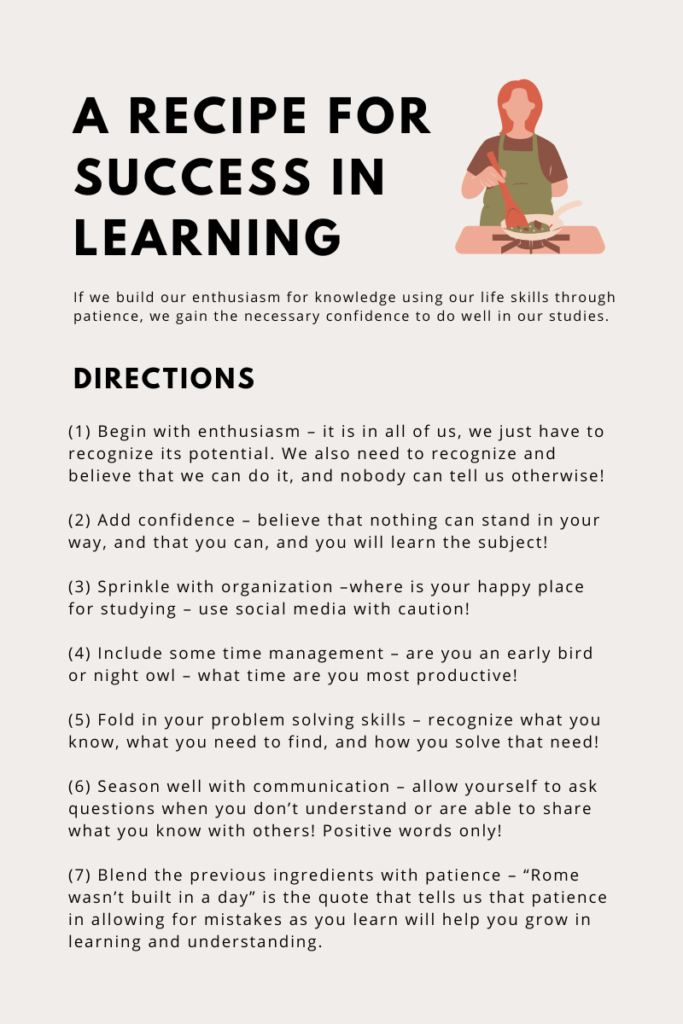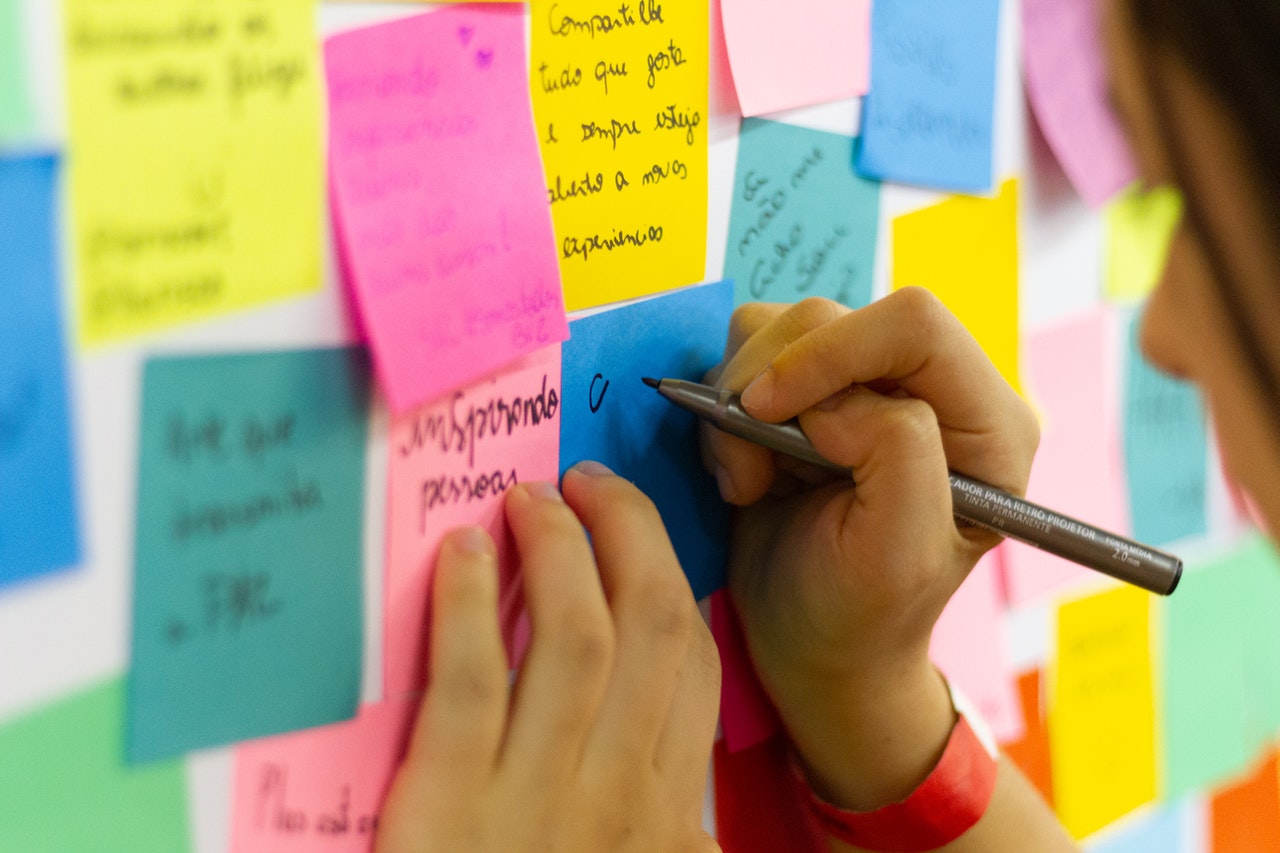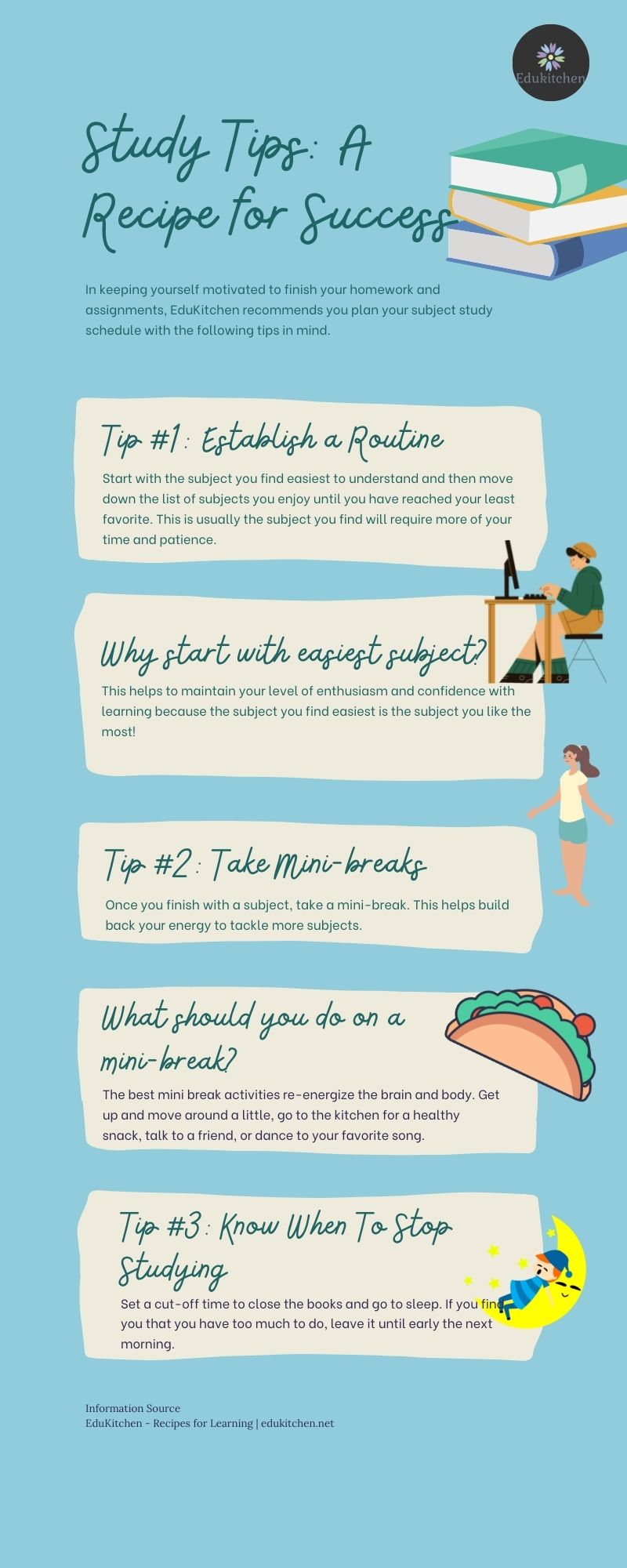5 Ways to Stay Organized in School
This article looks to give 5 ways to stay organized in school and save time when it comes to finding success in all they do.
This article can be for both teachers and students because it focuses on building important life skills!
Highlighted Skill: Organizational Skills
Welcome to my kitchen to classroom series where we will look at five topics in which the kitchen inspires education. This article will focus on the importance of organizational skills when it comes to teaching and learning in education.

Click here to view this and other selections of digital products on the ETI Academy shop!
The five ways are:
- Write it down
- Label it
- Categorize it
- Schedule it
- Establish a Routine
So what is “it”?
Whatever you need to keep organized!
Get a sneak peak at how to use these five points to keep organized by watching this video below!
How to Keep Organized from Kitchen to Classroom
Keeping organized in the kitchen means everything is in its proper placed, stored well, labeled as it should be. When it comes to meal prep or cooking, we keep all ingredients ready by organizing them before we cook.
For more benefits organization brings to education, click to read more from our kitchen to classroom article.
In school, teachers and students need to keep their supplies, goals, and thoughts organized. So we will keep those in mind as we read through the rest of this article.
5 Ways to Stay Organized in School
We now will look at the five ways teachers and students can stay organized at any stage in school.
The video below looks in depth at the five ways to stay organized. Watch the video, and let us know what you think!
And please remember to like, share, and subscribe to the The ETI Academy channel.
Write it down
One way to stay organized is to write down what needs to be organized!

Confused yet?
When you write down what supplies you need, what thoughts need to be expressed, or what goals need to be met, then keeping organized will be easy!
Label it
Keeping your supplies labeled makes it much easier to find, or to remember what its purpose is.
Labeling your thoughts helps to manage your emotions. How can we label our thoughts? By deciding its function. It is to judge? to plan? to make someone laugh?
Labeling your goals makes it easier to see whether or not you can achieve it or not!
Categorize it
So what is the difference between labeling and categorizing things or ideas?
In labeling we recognize its purpose or function. In categorizing we create groups we can label.
Categorizing just makes everything look nicer!
Your supplies such as pens, or papers, or color co-ordinated file folders will be easier to find!
Categorizing your thoughts as positive or negative will help you see how to get rid of the negative thoughts!
Categorizing your goals as now or later will help you see how easy it is to meet your goals!
Schedule it
After you categorize your work, thoughts, or goals to do, as now or later, you can make achieving your purpose, goals, and communicating easier!
Schedule work or goals that can get done easier first, that way you build confidence in getting the harder work or goals done later.
Scheduling your thoughts is as simple as “think before you speak”!
Establish a Routine
In getting supplies you need for school, think about getting them ready at the same time every day. For example, get your school supplies ready the night before so that you don’t have to rush in the morning!
Routines are like habits when it comes to your thoughts. Get into the habit of using kind words even if you don’t feel like it.
Setting goals doesn’t have to be something big. A simple goal of brushing your teeth every morning and night is not too much to ask!
Students & Their Study Habits
One additional way students can keep organized in school is by improving their study habits!
In addition to the general ways this article discusses to keep organized in school, when it comes to studying, students can also keep these points in mind.
- Establish a study routine
- Take mini-breaks
- Know when to stop studying!

I. Establish a Study Routine
The best way to establish a study routine is to look at your subjects in order of your favorite to least favorite. Why?
Even if your favorite subject needs a lot of work, get it done first because you enjoy this subject. You will build your confidence in getting the work done faster because you like the subject.
If you start with the subject you hate first, you could find yourself studying into the late hours of the night.
II. Take Mini-Breaks
After you finish with a subject, take a mini-break, such as getting a healthy snack, to build up your energy to carry on.
You should also take a mini-break if you just aren’t making any progress with your studies. This break maybe the breather you need to come back an tackle the questions once again.
III. Know When to Stop Studying
If nothing is sinking in as you study, or you are feeling tired or frustrated it may be time to call it a night and try again the next day.
Setting a cut-off time for studying actually benefits your mental health, so consider setting a cut-off time in knowing when to stop studying.
Whatever you didn’t finish after the cut-off time, you can get up a little earlier the next day to finish!
Staying Organized in School
This blog contains affiliate links to highlighted websites and/or resources. By clicking on the link and making a purchase we may earn a small commission at no extra cost to you. Click here for full disclosure.

Teachers and students may find many benefits to keeping a personal journal to help them keep track of their ideas to share with the class. For example, in noting their hopes and dreams for the future. Promptly Journals can help highlight your day as part of your recipe for success. Click here to order your “self-love” journal today!
Related Topics
Connect to our other pages as you navigate through our website. Explore what these pages have to offer you and you will be glad you did!
- 5 Life Skills Needed For Classroom Learning
- How Educational Videos Help Students Learn
- 7 Proven Ways to Teach for Success in Any Classroom
- SEL Guide on How Emotions Affect Learning in Students
- Step-By-Step Teaching Guide for the Writing Process
- Classroom Set Up Ideas for Back to School
- 5 Ways to Build Critical Thinking Skills in School
- 5 Ways to Teach Communication Skills in School
- 5 Ways to Improve Problem Solving Skills in Students
- 5 Ways to Improve Time Management Skills in School
- 5 Life Skills Needed For Classroom Learning
Join Us Today!
Final Thoughts…
I hope you enjoyed reading this article and found it useful for building good organizational skills that will help with your educational goals whether it be for teacher or learning or both!
Share Your Thoughts…
Leave us a comment below to let us know your thoughts on our ideas on the importance of building your organizational skills in education.






